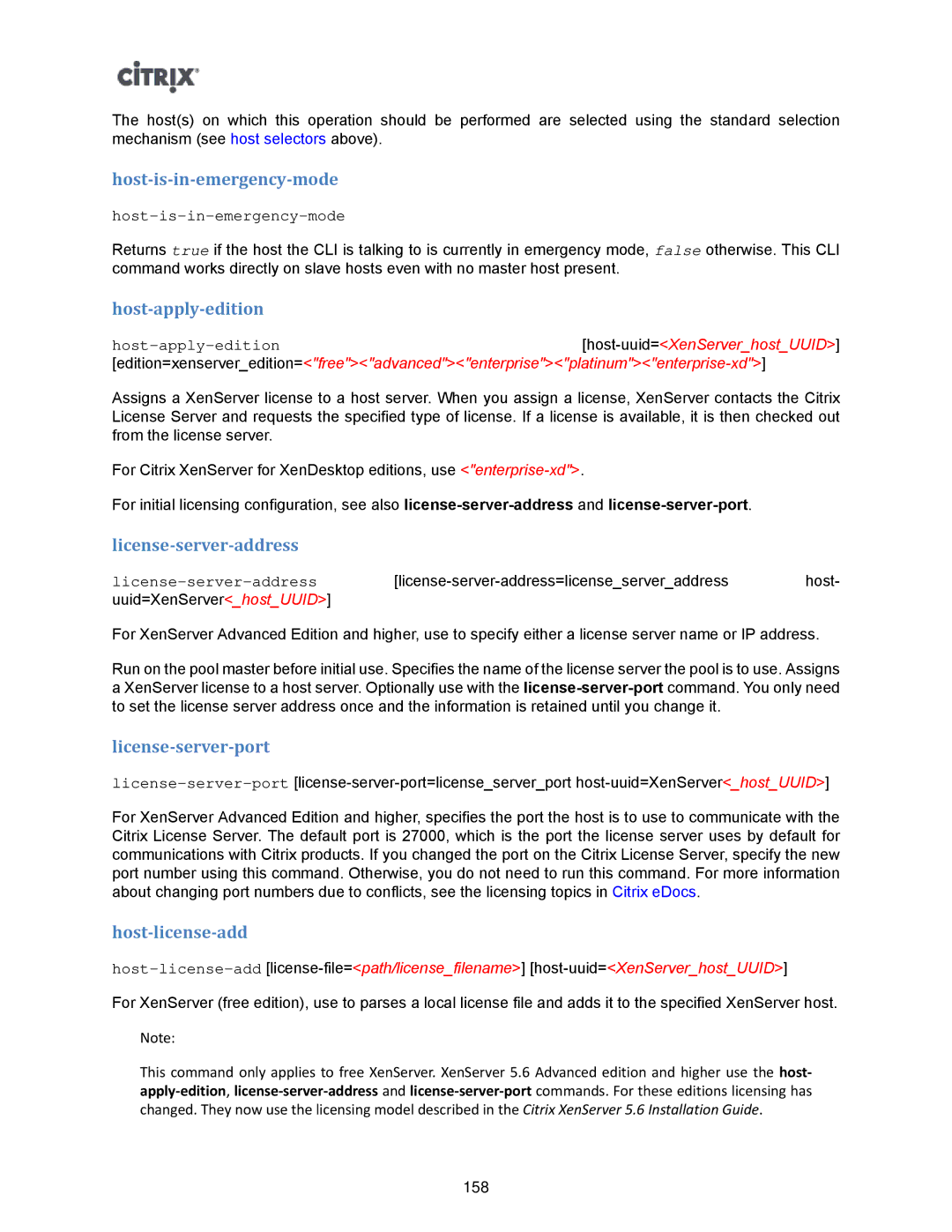The host(s) on which this operation should be performed are selected using the standard selection mechanism (see host selectors above).
host-is-in-emergency-mode
host-is-in-emergency-mode
Returns true if the host the CLI is talking to is currently in emergency mode, false otherwise. This CLI command works directly on slave hosts even with no master host present.
host-apply-edition
Assigns a XenServer license to a host server. When you assign a license, XenServer contacts the Citrix License Server and requests the specified type of license. If a license is available, it is then checked out from the license server.
For Citrix XenServer for XenDesktop editions, use
For initial licensing configuration, see also
license-server-address
For XenServer Advanced Edition and higher, use to specify either a license server name or IP address.
Run on the pool master before initial use. Specifies the name of the license server the pool is to use. Assigns a XenServer license to a host server. Optionally use with the
license-server-port
For XenServer Advanced Edition and higher, specifies the port the host is to use to communicate with the Citrix License Server. The default port is 27000, which is the port the license server uses by default for communications with Citrix products. If you changed the port on the Citrix License Server, specify the new port number using this command. Otherwise, you do not need to run this command. For more information about changing port numbers due to conflicts, see the licensing topics in Citrix eDocs.
host-license-add
For XenServer (free edition), use to parses a local license file and adds it to the specified XenServer host.
Note:
This command only applies to free XenServer. XenServer 5.6 Advanced edition and higher use the host-
158
